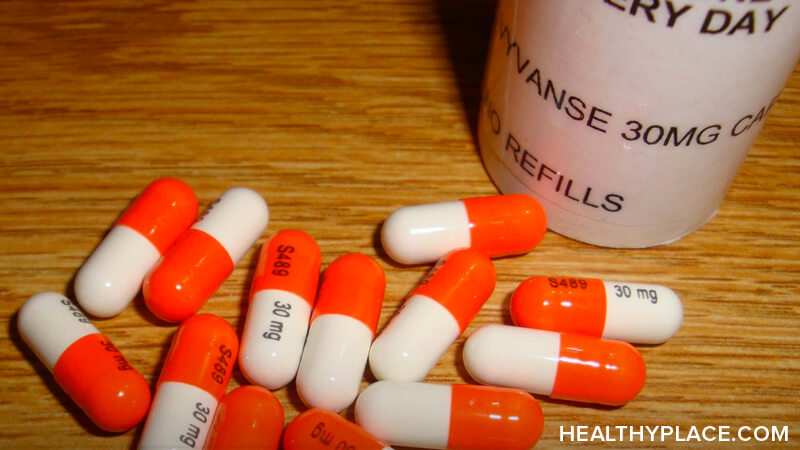What Happens When You Stop Taking Vyvanse?

Sometimes, people taking Vyvanse, a prescription medication used to treat ADHD, decide to stop taking Vyvanse. This drug is an amphetamine and central nervous system stimulant that changes the brain’s neurochemistry. Vyvanse raises levels of dopamine and norepinephrine in order to increase concentration and attention span while simultaneously decreasing hyperactivity and impulsivity. Vyvanse can help adult ADHD symptoms, yet this medication isn’t for everyone.
Quitting Vyvanse is a personal decision based on a variety of factors. Sometimes, people want to manage their ADHD symptoms without medication. Other times, people experience unpleasant side effects of adult ADHD medications. The most common side effects (Healthine, n.d.) include:
- Anxiety
- Headache
- Loss of appetite/weight loss
- Sleep problems
- Nausea
- Vomiting
There are other side effects, too, many of which are very serious. These can range from dry mouth and the jitters to toxicity (a build-up of the drug in the body), heart attack, stroke, and death. If a woman takes Vyvanse while breastfeeding, the drug will be passed to her infant ("Vyvanse [lisdexamfetamine dimesylate] Patient Information").
Another risk of taking Vyvanse is dependence. This occurs when someone has been taking high doses of a medication for an extended period of time. The brain and body develop a tolerance to the drug, in this case, Vyvanse. The medication loses effectiveness, requiring higher and higher doses just to maintain the same level of effectiveness. If you become dependent, it’s important to talk to your doctor about getting off Vyvanse.
What Happens When You Stop Taking Vyvanse?
What happens when you stop taking Vyvanse largely depends on how you stop taking it. Your experience will be drastically different if you taper off than if you suddenly stop taking Vyvanse.
Quitting Vyvanse cold turkey will likely result in a period of ADHD medication withdrawal. According to Harvey (2015), the most common things people experience with going through Vyvanse withdrawal are
- Fatigue
- Depression
- Cravings for the medication and thus a risk of relapse
Other Vyvanse withdrawal symptoms include:
- Mood changes
- Anxiety
- Agitation
- Restlessness
- Shaking
- Sweating
- Difficulty sleeping
- Irritability
- Increased appetite
- Vivid or lucid dreams
- Psychosis (occasionally)
If you suddenly stop taking Vyvanse, it’s highly likely that you’ll experience what is known as the Vyvanse crash. This is a sudden onset of possibly severe withdrawal symptoms, especially irritability, anxiety, and fatigue. Additionally, you may notice a sudden return of your adult ADHD symptoms.
Especially if you abruptly stopped taking Vyvanse and even if you are tapering off under medical supervision, you will do well to have support to help you handle the effects of Vyvanse withdrawal.
How to Properly Taper off Vyvanse
Gradually tapering off Vyvanse under your doctor’s guidance is the safe and effective way to stop taking Vyvanse. The drug is in your system, and it needs time to slowly diminish to avoid shocking your system.
This process of reducing and then eliminating Vyvance from your body is called detoxification, or detox. Your doctor will build a schedule, and you’ll see him or her for regular visits during the weeks that you are weaning. Sometimes, people participate in outpatient or even inpatient detox programs, but most people are able to use the schedule their doctor created for them.
Dealing with the Effects of Vyvanse Withdrawal
The withdrawal period for Vyvance depends on how you stop. When you taper off the medication with the guidance of your doctor, the period of time when you experience withdrawal symptoms is typically quite short, often just a few days. If you’ve been on a high dose for a long time, though, you’ll experience withdrawal symptoms longer than that. The exact length depends on the individual.
If you abruptly stop taking Vyvanse, your withdrawal symptoms can last approximately three- to four weeks, depending on the individual. The first week will be the Vyvanse crash period.
There are ways to deal with the effects of withdrawal. Unlike other drugs, Vyvanse has no medication that is proven to be effective in treating the withdrawal symptoms. While your symptoms can’t be eased medically, they can be eased psychologically.
Therapy can be an important component of the process of getting off Vyvanse. Working with a therapist can help you develop coping skills as well as ways to deal with the cravings for Vyvanse you may experience.
Getting off Vyvanse is okay to do if you and your doctor agree that it’s a good choice for you. However, it’s unpleasant at best and dangerous at worst to quit Vyvanse cold turkey. Go through the detox process with your doctor’s monitoring, and you’ll soon be Vyvanse-free.
APA Reference
Peterson, T.
(2021, December 20). What Happens When You Stop Taking Vyvanse?, HealthyPlace. Retrieved
on 2024, November 20 from https://www.healthyplace.com/self-help/adhd/what-happens-when-you-stop-taking-vyvanse



